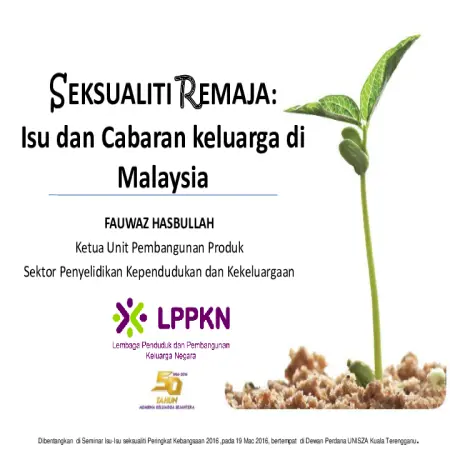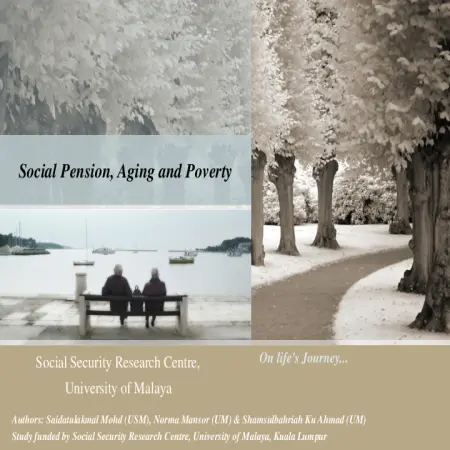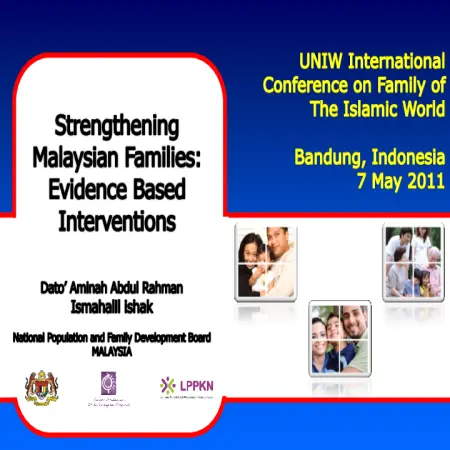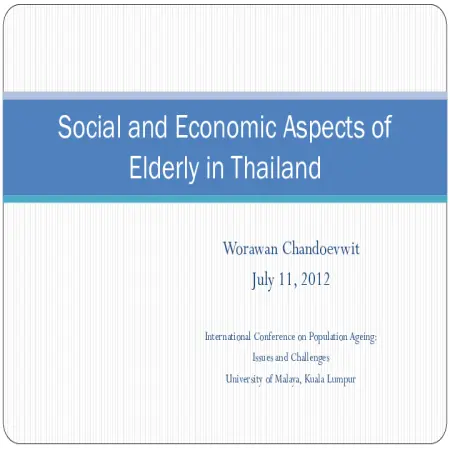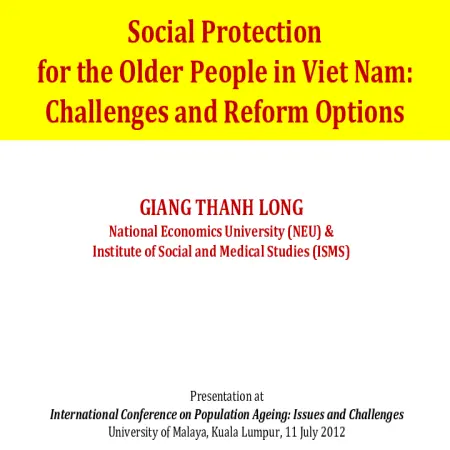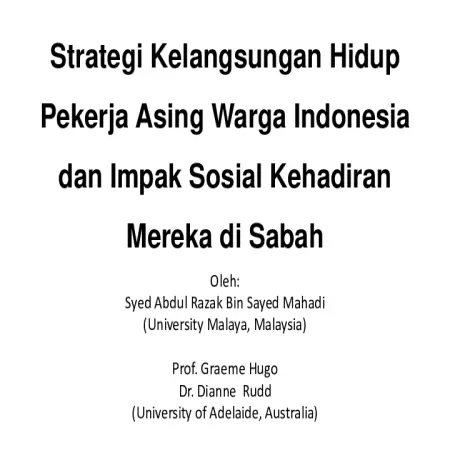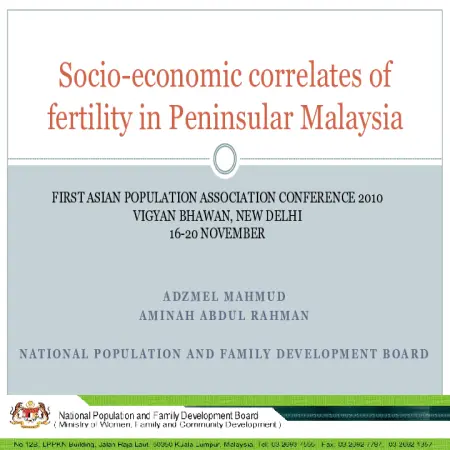Browse by Type
Results for Item type : "Conference or Workshop Item"
|
SDGS and the impact of megatrends on Families: perspectives from Malaysia
Item Type: Conference or Workshop Item
Year: 2024
Abstract: 57th Commissions on Population and Development (CPD57): Assessing the status of implementation of the Programmed of Action of the International Conference on Population and Development and its contribution to the follow-up and review of the 2030 Agenda for Sustainable Development...[Read More]
|
|
|
|
|
|
Social pension, aging and poverty in Malaysia
Item Type: Conference or Workshop Item
Year: 2014
Abstract: The increasing number of elderly in Malaysia calls for a more stringent policy to safeguard the well-being of the elderly. The old age protection such as the pension scheme, Employees Provident Fund and the old age cash assistance although in tact, deemed to be inadequate to eradicate...[Read More]
|
|
|
|
|
|
Strengthening Malaysian families: evidence based interventions
Item Type: Conference or Workshop Item
Year: 2012
Abstract: Malaysian families today are facing numerous challenges related to changing family relationships, values, need for work life balance and support systems. Some of these key challenges are as a result of a new family forms, postponement of marriage, declining fertility and effects of...[Read More]
|
|
|
|
|
|
Social and economic aspects of elderly in Thailand
Item Type: Conference or Workshop Item
Year: 2012
Abstract: Thailand is already an aging society. About 14% of population are elderly. Using a national survey, it can be shown that 16% of elderly households in the rural area have substandard living condition. The majority of elderly (60%) rely on remittance for their living. About 20% of...[Read More]
|
|
|
|
|
|
Social protection for the older people in Vietnam: challenges and reform options
Item Type: Conference or Workshop Item
Year: 2012
Abstract: This paper aims to argue that the Vietnamese population has been aging more quickly than expected, and as such policies toward an aging population, particularly delivery of social protection services for the aged, should be well-prepared from now in order to have older and wealthier...[Read More]
|
|
|
|
|
|
Strategi kelangsungan hidup pekerja asing warga Indonesia dan implikasi sosial akibat kehadiran mereka di Sabah
Item Type: Conference or Workshop Item
Year: 2012
Abstract: Sabah's direction focuses on the development of 3 main sectors such as agriculture, tourism and manufacturing to drive the economy. As an agro -economy -based state, the 2010 census recorded 30 per cent of the total workforce engaged in the agricultural sector. As locals are not...[Read More]
|
|
|
|
|
|
Socio-economic correlates of fertility in Peninsular Malaysia
Item Type: Conference or Workshop Item
Year: 2010
Abstract: To examine fertility trends and differentials among women in Peninsular Malaysia by selected socioeconomic variables which significantly influence the number of children ever born. A total of 3,697 ever-married women aged 15-49 were successfully interviewed in Peninsular Malaysia.
|
|
|
|
|






